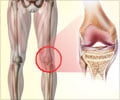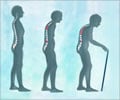Psychological Symptoms of Menopause
Apart from the vasomotor symptoms such as hot flashes and night sweat, menopausal women may experience psychological symptoms of menopause which is again associated with the drastic drop in the estrogen levels during this phase. Common emotional and psychological symptoms include –
- Mood swings: Some women are very vulnerable during periods of intense hormonal fluctuations in menopause. Abrupt hormone changes alter the equilibrium in neurotransmitter systems in the brain and the woman experiences mood swings and behavioral changes.
- Depression and anxiety: Depression may hit during the perimenopause phase up to menopause. Although most theories link it directly to the fluctuating hormones, mood swings are also thought to lead to depression and anxiety. Many believe that the vasomotor symptoms such as hot flushes and night sweat ‘provoke’ physical changes such as insomnia that further affects mood stability. This is known as the domino theory. These mood swings cause depression over time.
- Fatigue: Fatigue, mostly mental, is experienced by many menopausal women. It is typically the result of mental stress due to unwanted physical changes a woman undergoes during this phase. Mental fatigue manifests in the form of decreased attention span, problems with concentration, and physical exhaustion.
- Low libido: Reduced sexual desire, poor arousal and orgasm and impaired sexual satisfaction are the most common sexual complaints in the context of menopausal women. Again, age and estradiol levels and reduced androgens levels are responsible for low libido in women.
- Irritability, forgetfulness, and memory loss are some of the other symptoms that affect the woman psychologically when she is in the perimenopause phase leading to menopause.






















